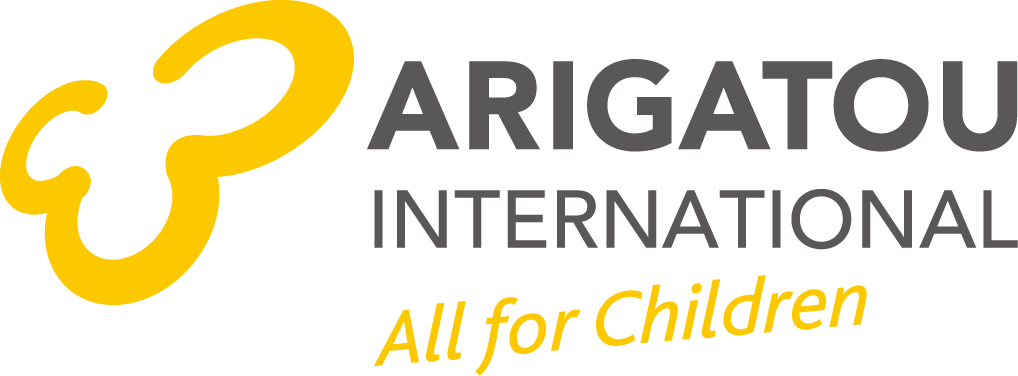More than 1,700 children, youth, and adults from diverse cultural, ethnic, and religious backgrounds got together at the GLOBAL WEEK of Faith in Action for Children, held online from 16 to 20 November 2020. The GLOBAL WEEK was organized by Arigatou International, in collaboration with UNICEF, Religions for Peace, Shanti Ashram, World Vision International and KAICIID; and with the support and participation of 64 global, regional, and local partners.
With 24 live sessions in five languages, the GLOBAL WEEK of Faith in Action for Children was a unique opportunity for children, youth, and representatives from different sectors of society to come together to propose joint actions to tackle and transform the negative impact of the COVID-19 pandemic –including limited access to education, increased violence against children and child poverty– mobilizing globally for the well-being of children and their communities.
The discussions and reflections about the impacts of COVID-19 in the world and its implications for our future would be incomplete without children’s voices. “We must keep in mind that children are very vulnerable to the impact of the pandemic, and we need to listen to their voices and stand by them”, said Rev. Keishi Miyamoto, President of Arigatou International, and Convenor of the Global Network of Religions for Children (GNRC).
With this in mind, the GLOBAL WEEK of Faith in Action for Children prioritized children’s meaningful participation, providing an all-age program that included a child-friendly website to ensure their full engagement and safety, as well as three child-led sessions, to foster their agency and participation. Out of the 133 speakers, 60 were children. Moreover, 300 children joined us either as panelists, audience or by contributing to the virtual exhibition.
Throughout the week, participants were invited to join different activities including intergenerational dialogues, interfaith prayers, interactive workshops, roundtable discussions and a virtual exhibition. There were four Grassroots-led sessions, organized by members of the Global Network of Religions for Children, and three Child-led sessions, under the title Children as Agents of Positive Change, organized by groups of children and youth from India, Indonesia and Latin América (Argentina, Colombia and Panama).
Arigatou International Geneva led two sessions on ethics education for children. The first one was an intergenerational dialogue to discuss How Education Can Respond to the Challenges presented by COVD-19 in the Lives of Children. The session was held in Spanish on Monday, 16 November 2020 and was moderated by Carlos, a child from the GNRC Youth Committee, and Ms. Maria Lucia Uribe, Executive Director of Arigatou International Geneva.
The panel was composed of Ms. Maria Martha Barreneche, International Coordinator of Educational Experiences with Youth at Scholas Ocurrentes, and Mr. Vincenzo Placco, Education Specialist from UNICEF Latin America and the Caribbean.
The session invited participants to explore and analyze how the Pandemic has affected education and spaces for young people to interact with each other, their relationships with others, their safety and emotional stability. Participants identified how young people can respond to the challenges they face and the injustices in their communities, and develop positive relationships with others. Children and adults made recommendations so that education can help empower children and young people to learn to live together and in solidarity with others.
The second session titled The Transformative Role of Education in Times of COVID-19 and Beyond – Challenges and Opportunities was held on Tuesday 15. This intergenerational discussion aimed at reflecting on the role of education in fostering interconnectedness, strengthening children’s agency, and addressing inequalities as well as promoting social justice in the times of COVID-19 and beyond.
Among the panelists were Steven, a child from GNRC Peace Clubs in Tanzania, and Emira, a child from GNRC Bosnia and Herzegovina. Ms. Ann Therese Ndong-Jatta, Director and Representative, UNESCO Regional Office for Eastern Africa together with Dr. Scherto Gill, Senior Fellow and Executive Secretary, Guerrand-Hermès Foundation for Peace, Dr. Anantha Duraiappah, Director, UNESCO Mahatma Gandhi Institute of Education for Peace and Sustainable Development, Dr. Kezevino Aram, President Shanti Ashram, India, and Co-chair, Arigatou International Advisory Group, and Co-moderator, Religions for Peace and Prof. Mohamed Abu-Nimer, Professor, School of International Service, American University, and Senior Advisor, KAICIID Dialogue Centre completed the panel.
During the discussions, participants were able to identify policies and approaches to drive the transformative role of education in the current context and going forward.
The week-long event culminated with the celebration of the World Day of Prayer and Action for Children, which marks Universal Children’s Day on 20 November 2020.
On 9 December 2020, the participants of the GLOBAL WEEK of Faith in Action for Children issued the Statement on Faith in Action for Children – Taking Action Together for Children in Response to the COVID-19 Pandemic and Beyond. The statement includes 11 proposals developed by children and young people after participating in the GLOBAL WEEK, as well as six joined Commitments to Action developed by children, young people and religious leaders from more than 53 countries, together with representatives of the United Nations, international, national and grassroots organizations, and diverse experts.
The video recording of each session, together with graphic recordings, a summary video, and the Statement are available HERE.
The post Enhancing Dialogue and Collaboration for Children’s Rights and Well-being – Ethics Education at the GLOBAL WEEK of Faith in Action for Children appeared first on Ethics Educations for Children.
